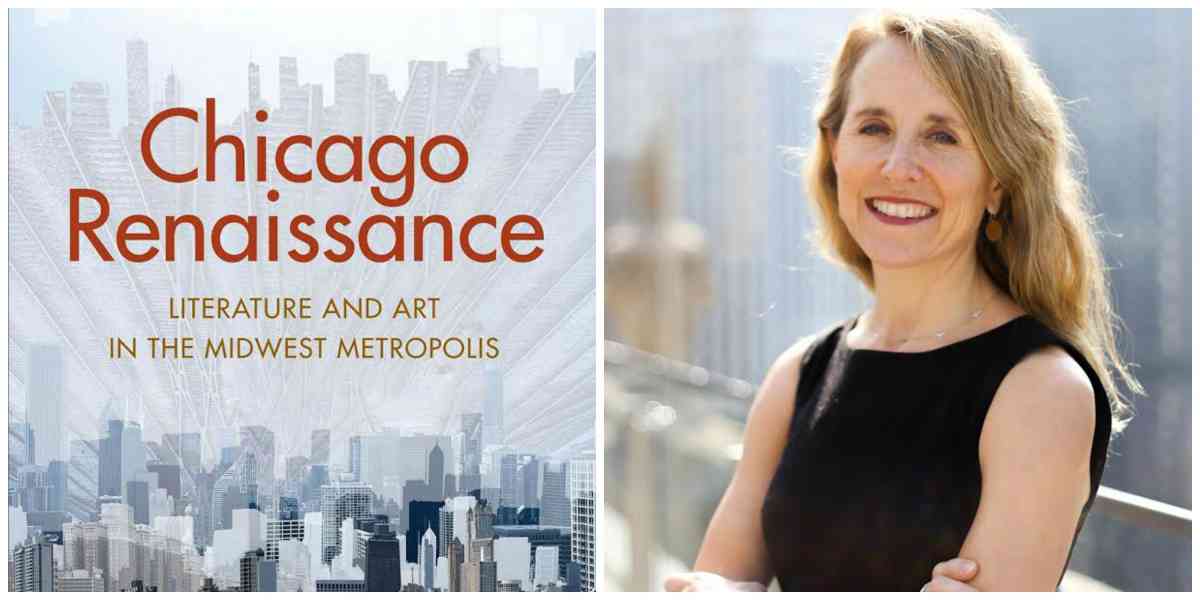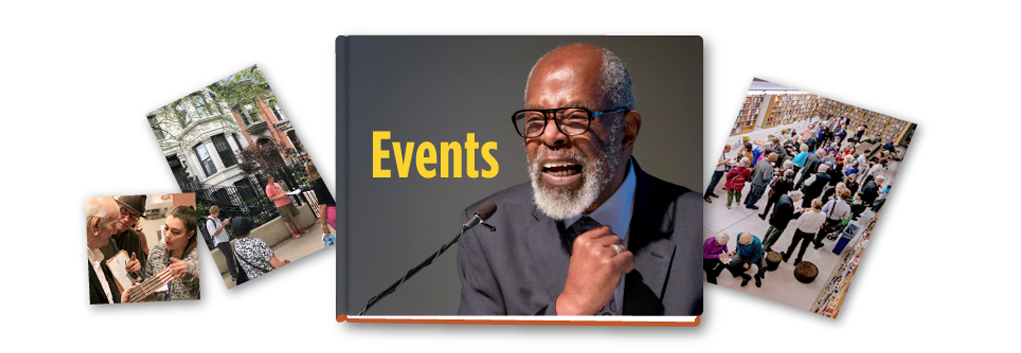Events
Great Chicago Books Club: Liesl Olson’s Chicago Renaissance
Sunday, June 24, 2018
6-8:30 p.m.
Ravenswood Manor
Private Home
Contact Don Evans at dgevans@chicagoliteraryhof.org for more details.

The modernist movement, outside academia, is often considered elitist; artists like Gertrude Stein downright baffling; and Chicago’s place in it mostly architectural. Liesl Olson’s cultural history of that period makes a clear and insightful case that Chicago was essential to the movement, and that the literature arising from it both avant-garde and accessible. Olson, in her book, mirrors this quality that partly defined the Chicago Renaissance, distilling high-minded ideas into an intellectual carnival: the city’s art, its personalities, its industry, its euphoric struggle to make and represent a new age. Like the Chicago literary modernists, Olson (director, Chicago studies, Newberry Library) has it both ways, laying out a nuanced, scholarly discussion for the serious academic while at the same time providing an easy, entertaining read for the earnest layman.
We’re thrilled to have Liesl as our special guest for the June 24 Great Chicago Books Club meeting. Our next Great Chicago Books Club on Sunday, June 24, will feature Liesl's fantastic book Chicago Renaissance: Literature and Art in the Midwest Metropolis. We'll have the event at Dave and Karen Cihla's stucco 4-square home in Ravenswood Gardens – an enclave of single-family homes in Lincoln Square. The home includes a covered open front porch that runs the width of the house that we'll use for the event. The evening begins with a cocktail party at six p.m. that includes appetizers, desserts, wine, beer, and alternative beverages. The book discussion begins at 7:30 p.m. The cost is $60, which will include a new, hardcover copy of the book (retails at $35). Cost without the book is $45. Limited reservations accepted. Contact Don Evans with inquiries, to reserve your place, get your book, and/or to get more details about the private home in which the event will be held.
“Fiction and poetry give us singular access and understanding into this human dimension of Chicago’s history,” Olson writes in her introduction. “These imaginative forms allow us to inhabit a world that may be quite different from our own. To be sure, we often turn to fiction and poetry for information about the past, for evidence of the culture in which literary works were produced.”
Olson begins in 1892 with an “interlude,” or fictional scene, from Harriet Monroe’s point of view; she ends in 1944 with a chapter revolving around Gwendolyn Brooks. The interludes (Monroe, Sherwood Anderson, Fanny Butcher, Bobsy Goodspeed, Brooks) serve as intermissions from dense scholarship and preview material to come (chapters featuring Monroe, Anderson, Ernest Hemingway, Stein, and Brooks). The structure allows Olson wide berth to seamlessly integrate mounds of historical research, and in so doing demonstrate the overlapping, influential relationships between artistic disciplines, institutions, places, people, periodicals, books, events, and support groups.
Monroe to Brooks is a deliberate choice that signals Olson’s insistence on showing that Chicago’s earlier (mostly white) and later (mostly black) renaissances were part of a continuous creative uprising. A scene in which Nelson Algren offers editorial insight to Brooks provides a glimpse into the connective tissues between seemingly disparate groups and times. This structure also shows Olson’s determination to represent the influence of women and non-writers on this creative period.
Olson does, in fact, convince readers that lasting work from that period was conceived and nurtured amongst a crowd rather than in isolation. Olson’s most remarkable accomplishment, among many in this extraordinary book, is that she allows the reader to feel the thrill in creation. Creation unique to a city new enough to see potential in a blank canvas. Creation that enacted and reflected change. Creation bigger than its creator. As Olson writes of Monroe in her conclusion, “To be part of a movement—a collective, a cohort—was for her to feel a larger sense of possibility, of new potential, of optimistic boosterism so distinctive to Chicago.”








